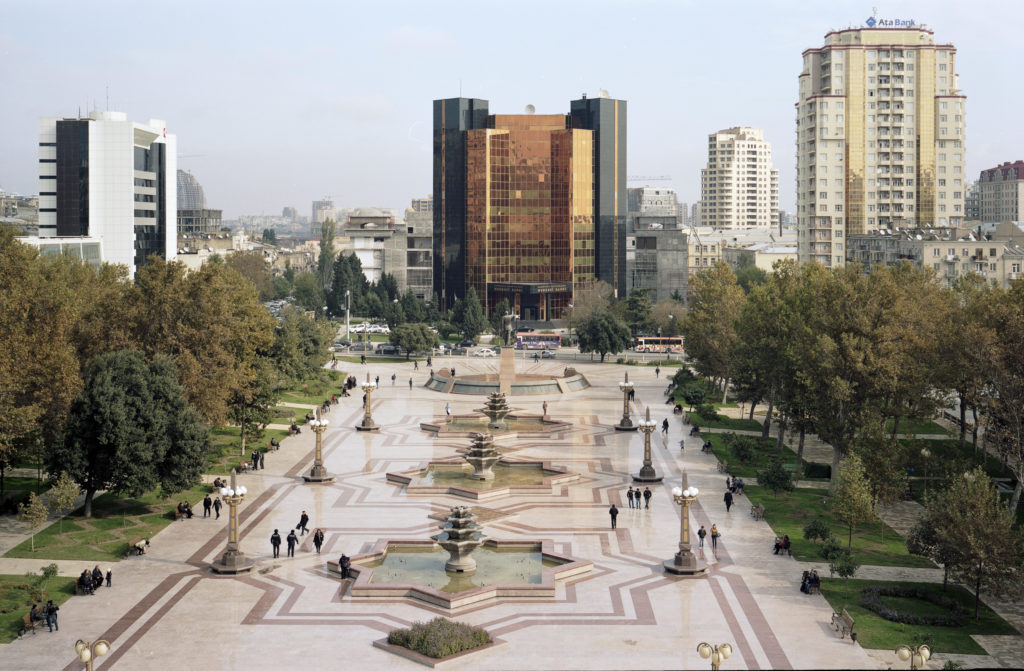BAKU
Azerbaijan’s central bank raised its key refinancing rate to 7.0 percent from 6.5 percent, amid accelerating inflation globally and a decrease in demand domestically.
The bank raised the upper level of the rate corridor to 8.0 percent from 7.0 percent, while the lower level remained unchanged – at 6.0 percent.
The central bank had kept the rate unchanged since December 2020, when it cut 25 basis points from 6.50 percent. In September the bank raised the rate to 6.50 percent from 6.25 percent, the first rise in five years.
“The decision was made with due regard for the continuing inflationary pressures in the economy, the persistence of factors affecting inflation, rising prices in world markets, high inflation in trading partner countries and rising inflationary expectations,” the bank said in a statement.
Consumer prices in Azerbaijan rose by 1.8 percent in September on a monthly basis after rising 0.5 percent in August. Annual inflation in September was 5.2 percent, up from 4.8 percent in August this year.
Annual inflation might be higher in 2021 than an initial forecast of 4.9 percent and up from 2.8 percent in 2020, Elman Rustamov, the central bank governor said in a statement.
He said average annual inflation might be in a range of 6.2-6.5 percent this year.
Experts say that the central bank’s monetary policy is expected to focus on inflation control whilst still supporting economic recovery. Broad money is forecast to rise due to continued fiscal stimulus and resumed growth in credit to the private sector, while Azerbaijan’s exchange rate should remain stable as a renewed trade surplus takes the pressure off the manat.
Azerbaijan’s gross domestic product (GDP) grew 4.8 percent in January-September this year from a year earlier mainly backed by the growth in the non-oil sector.
In September, Azerbaijan has raised its economic growth forecast for this year – GDP is now projected to grow 4.6 percent and amount to 82.3 billion manats ($48.4 billion), up from a previous projection of 3.4 percent.
The World Bank said in June that Azerbaijan’s economic growth should be supported by the stabilisation of oil prices as well as investment and reconstruction spending.
The November 2020 ceasefire agreement between Armenia and Azerbaijan alleviated geopolitical tensions in the region, although risks to stability remain elevated.
The World Bank predicts that Azerbaijan’s economy will grow 2.8 percent this year and 3.9 percent in 2022, while the International Monetary Fund forecasts 3.0 percent growth in 2021, and slowing to 2.3 percent in 2022.
Meanwhile, the Asian Development Bank said in June that growth was forecast to return in 2021 at 1.9 percent and accelerate to 2.5 percent in 2022 as demand improves at home and abroad. As consumer confidence is restored and petroleum receipts become available for public investment, growth in the petroleum industry is expected to be outpaced by expansion in the rest of the economy, it said.

